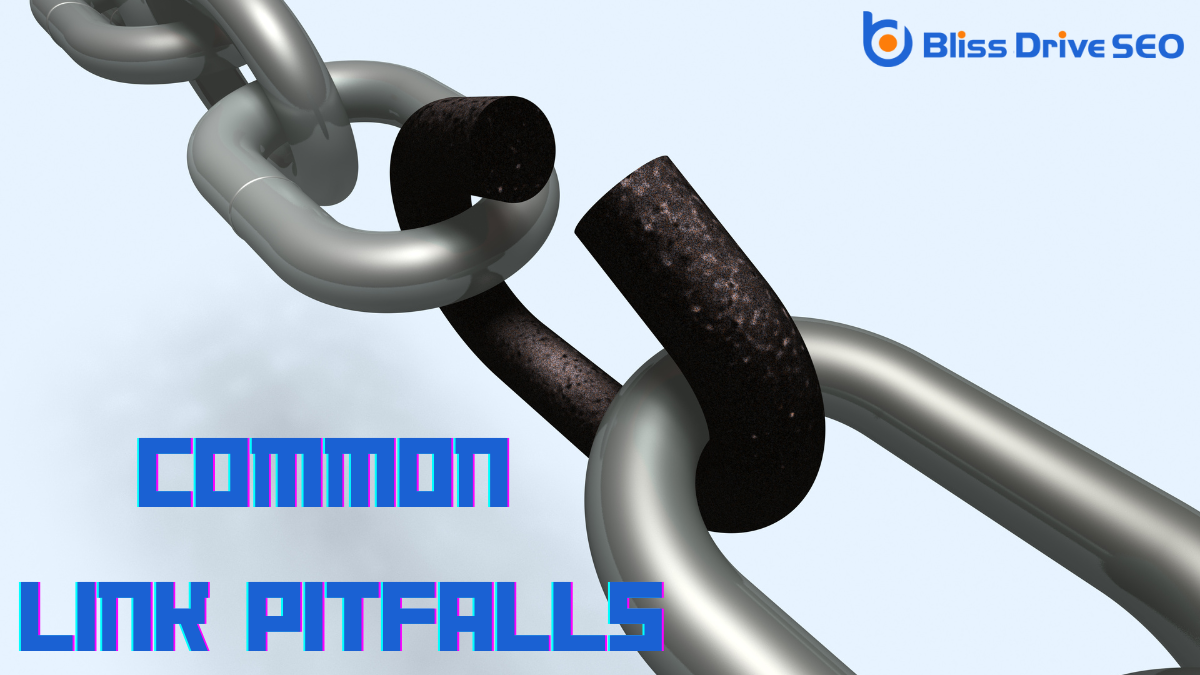Digital Marketing Services
Learn More About Us

When you're considering how to enhance your website's SEO, you've probably wondered about the power of links. It's widely accepted that backlinksLinks from other websites pointing to your website, crucial for SEO. can greatly impact your site's visibility and authority in search engines. But have you ever stopped to think about the balance between link quality and quantity? Does acquiring a multitude of links from less reputable sources really hold value, or is it the high-quality, relevant ones that truly make the difference? There's more to explore when you weigh the benefits and potential pitfalls of different link-building strategies.
Backlinks are essential to understanding how search engine optimization (SEO) works. When you're trying to improve your website's visibility, knowing about backlinks can greatly impact your strategy. A backlink is simply a link from one website to another. Think of it as a vote of confidence from one site to yours. It tells search engines that your content is valuable and trustworthy.
To grasp how backlinks influence SEO, consider their role in building authority. When reputable sites link to your content, it signals to search engines that your site is credible. This increases your chances of ranking higher in search results.
Not all backlinks are equal, though. Quality matters more than quantity. Links from high-authority domains carry more weight than those from lesser-known sites.
You also need to focus on relevance. If a website related to your nicheA specific segment of the market targeted by affiliates to promote products or services. links to your content, it's more beneficial than a link from an unrelated source. This relevance helps search engines understand your content's context and value.
To effectively use backlinks, aim for diverse, high-quality links that reflect your content's relevance and authority in its field.

While backlinks play a significant role in SEO, understanding how Google views these links is equally important. Google uses links as a way to gauge the credibility and authority of your website. When reputable sites link to yours, it's like receiving a vote of confidence. Google's algorithms consider these endorsements when ranking your site in search results.
However, not all links are created equal. Google prioritizes quality over quantity. A few high-quality backlinks from authoritative sites can have a greater impact than numerous links from lesser-known sources. You should focus on earning links naturally, as opposed to acquiring them through dubious means, like link farms or paid schemes, which can leadA potential customer referred by an affiliate who has shown interest in the product or service but h... to penalties.
Google's perspective on links also involves relevance. Links from sites within your industry or niche carry more weight. They indicate that your content is valuable and relevant to your specific audience.
Additionally, Google evaluates the anchor textThe clickable text in a hyperlink, important for SEO as it provides context for the linked page.—the clickable text in a hyperlink. It should be descriptive and relevant to the content it's linking to.
Ultimately, understanding Google's perspective on links helps you align your SEO strategies with what search engines value most, ensuring your efforts are both effective and sustainable.
Understanding the types of links in SEO is fundamental for building an effective strategy. When you know what types of links exist, you can optimize your efforts to boost your site's visibility. Here's a breakdown of the main types you'll encounter:
Grasping these link types will empower you to create a well-rounded SEO strategy. Focus on a mix of these links to improve your site's search ranking, credibility, and user engagementThe level of interaction and involvement users have with social media content.. With this knowledge, you'll be better equipped to enhance your SEO efforts effectively.
When you're building links for SEO, prioritize quality over sheer quantity because high-caliber links can greatly enhance your site's credibility.
However, don't overlook the significance of maintaining a balanced link volume to guarantee steady traffic growth.
Striking the right balance between quality and quantity is essential for maximizing your SEO efforts.
In the world of SEO, not all links hold equal value. You might think that more links automatically mean better rankings, but that's not the case. Quality trumps quantity when it comes to boosting your website's SEO. High-quality links from reputable and authoritative sites can significantly impact your search engine rankings. These links act like votes of confidence, signaling to search engines that your content is trustworthy and valuable.
When considering the quality of a link, focus on these key aspects:
Striking the right balance in link volume is essential for an effective SEO strategy. You might wonder whether to focus on link quantity or quality. It's a common debate, but the key lies in understanding how each impacts your site.
Quantity can boost your visibility quickly, but if those links come from low-quality or spammy sites, they can damage your reputation. Search engines like Google are more sophisticated now; they prioritize quality links that come from reputable, relevant sources. So, you need to be selective.
Imagine a scenario where you've got hundreds of links, but they're from unrelated or low-authority sites. This won't help you climb the rankings. Instead, think about acquiring fewer high-quality links from authoritative websites in your niche. These links signal to search engines that your site is trustworthy and relevant, ultimately boosting your SEO.
However, don't ignore quantity entirely. A healthy mix is ideal. Aim for a consistent link-building strategy that favors quality but doesn't completely disregard volume. By balancing both, you'll create a robust SEO strategy that enhances your site's authority and visibility over time.

When you're focusing on link-building strategies, prioritize quality links over sheer quantity to boost your SEO effectively.
To earn these valuable links, consider using techniques like creating compelling content and engaging with reputable sites.
Additionally, forming strategic partnerships can offerThe specific product or service being promoted by affiliates. mutual benefits and enhance your site's authority.
Focusing on quality rather than sheer quantity can greatly enhance your SEO strategy. You might think that more links automatically boost your site's ranking, but that's not the case. Search engines have become smarter, valuing relevant and authoritative links over a large number of low-quality ones. Quality links can significantly improve your site's credibility and visibility.
When building links, consider these aspects:
Building a robust SEO strategy involves not only focusing on link quality but also mastering the art of earning links. To earn links effectively, start by creating valuable, shareable content that resonates with your target audience. If your content is informative, engaging, and unique, people are more likely to link back to it. Understanding your audience's needs and interests is crucial, so you can tailor your content accordingly.
Moreover, leverage guest bloggingWriting and publishing articles on other websites to reach a new audience. opportunities. By writing insightful articles for reputable sites in your niche, you can showcase your expertise while earning backlinks. Ensuring your guest content is high-quality and relevant, as this will increase the likelihood of other sites linking to it.
Don't underestimate the power of social media, either. Sharing your content across various platforms can boost its visibility and encourage others to link to it. Engage with your audience by responding to comments and participating in discussions to foster relationships.
The potential of strategic partnerships in link-building can't be overemphasized. By collaborating with other businesses or influencersIndividuals with the power to affect the purchasing decisions of others due to their authority, know..., you can create a win-win situation that enhances your online presence and boosts SEO. When you form these partnerships, you're not just exchanging links; you're building a network that can drive significant traffic and increase your brand's credibility.
Consider the benefits of strategic partnerships in link buildingThe process of acquiring backlinks from other websites.:
To make these partnerships work, make sure that your goals align with your partner's. Communicate openly and maintain a mutually beneficial relationship. Strategic partnerships are more than just a link exchange; they're a pathway to sustainable growth and improved SEO performance.

When diving into the world of SEO, it's easy to stumble into common link pitfalls that can undermine your efforts. One major pitfall is acquiring links from low-quality or spammy sites. These links may seem easy to get, but search engines frown upon them and can penalize your site. Instead, focus on earning links from reputable, high-authority websites in your industry.
Another trap is relying solely on exact matchA keyword match type where ads show only for searches that match the exact keyword or close variants... anchor text. While it was once a favored tactic, overusing exact match keywordsWords or phrases that users type into search engines to find information. in your link text can appear manipulative to search engines, which might lead to penalties. Diversify your anchor texts with variations and natural phrases to keep your links looking organic.
Also, don't forget about the importance of relevance. Links from sites unrelated to your niche won't provide much value and can confuse search engines about your site's focus. Aim for links from sites with similar or complementary content.
Lastly, avoid ignoring your own internal links. While external links are important, internal linkingLinks that connect different pages on the same website. helps distribute page authority and improve site navigation. Keep an eye on broken links, as they create a poor user experience and can negatively impact your SEO efforts.
Evaluating the impact of your link-building efforts is crucial to understanding and improving your SEO strategy. You can't just create links and hope for the best; you need to measure their effectiveness. Start by monitoring your website's search engine rankings. If your rankings improve after acquiring new links, that's a positive sign. Utilize analyticsThe systematic computational analysis of data or statistics to gain insights and support decision-ma... tools to track changes in organic trafficVisitors who come to a website through unpaid search engine results., which can indicate whether your links are driving more visitors to your site.
Here are some key metrics to focus on:
As you navigate the ever-changing landscape of SEO, staying informed about emerging link trends is crucial for maintaining a competitive edge. One trend you should watch is the growing importance of link relevance. Search engines now prioritize links that provide contextual relevance, so make sure your links naturally fit your content's theme. This way, they enhance user experience and boost your search ranking.
Another trend is the rise of niche-specific link-building. By focusing on obtaining links from websites within your specific industry or niche, you create a more authoritative and trustworthy link profile. This approach not only strengthens your SEO but also connects you with a targeted audience.
Additionally, don't overlook the increasing influence of authority and trustworthiness. Search engines are refining their algorithms to reward links from sites recognized as leaders in their fields. You should target high-authority sites for backlinks, as these carry significant weight in search rankings.
Lastly, understand the shift toward user-generated content links. Encouraging customers or followers to create content that links back to your site can be a powerful strategy. This not only diversifies your link sources but also fosters community engagementThe interactions that users have with a brand’s content on social media., further enhancing your SEO efforts.

Understanding the role of internal links is vital for optimizing your website's SEO. Internal links connect different pages on your site, guiding users and search engines through your content. They play a significant part in establishing your site's architecture and hierarchy, which can notably impact your search visibility. Here's how internal links can boost your SEO:
As you look ahead, you'll notice that linking strategies are constantly evolving, adapting to changes in search algorithms and user behavior. Artificial intelligence is playing a bigger role, helping to analyze link quality and relevance more effectively than ever before. It's important to stay informed and flexible to guarantee your strategies align with these advancements.
While the fundamental principles of link-building have remained constant, the strategies have evolved substantially over time. You might remember the days when simply accumulating as many links as possible seemed like the way to go. But now, it's not just about quantity; it's about quality and relevance. Search engines have become smarter, and your approach needs to adapt accordingly.
To stay ahead, focus on these key strategies:
Jumping into the future of link building, AI is set to revolutionize how we approach this critical SEO component. As you explore the evolving landscape, you'll find that AI streamlines the process, making link-building more efficient and strategic.
It analyzes vast amounts of data quickly, identifying link opportunities that align with your content's niche and audience. This means you can focus on quality over quantity, targeting links that truly enhance your site's credibility and authority.
AI tools can predict trends and provide insights into which links are likely to boost your SEO efforts. They help you stay ahead of the competition by suggesting innovative strategies and uncovering hidden link-building opportunities.
You'll find that AI's ability to personalize and customize outreach campaigns increases the chances of securing valuable backlinks.
Moreover, AI can assist in monitoring the performance of your link-building efforts. It provides real-time data and analytics, allowing you to adjust your strategies promptly. By leveraging AI, you'll not only improve your site's ranking but also save time and resources.
Embracing AI in link-building positions you for success in an ever-changing digital world.
To sum up, you should focus on acquiring high-quality backlinks to boost your site's SEO performance. Google's algorithms favor credible and authoritative links, so they prioritize relevance and authority over sheer quantity. Stay updated on emerging trends and adapt your link-building strategies accordingly. Don't forget the importance of internal links, as they guide users and enhance site navigation. By strategically building and measuring your link impact, you'll strengthen your website's credibility and drive organic traffic.
